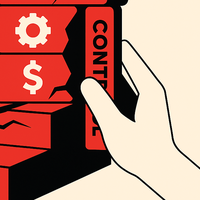The battle may be hopeless, but like General Custer and other foolhardy pseudoheroes, we’ll fight for history if nothing else.
That accursed asterisk continues to infect selling copy like a nasty plague. Asterisk-happy marketers — make that lazy marketers — hope nobody will notice that the asterisk destroys a promise; what they don’t seem to understand, in their malevolent combination of greed and ignorance, is that way back in kinder, gentler times (the year 1806 will do), the asterisk actually served a positive purpose.
But now it’s a shiv stuck into the ribs of selling copy. Here’s one from a Mexican resort, Brisas: “Groups Package from $180.00*” Oh? The asterisk says, “Prices are per person, per night on a double room.” Aw, come on. When was the last time you booked a room “per person”? That’s $360 per room, kids, and don’t tell me this approach is common for group pitches. Integrity would have called for “Groups Package from $180.00 per person.” (Don’t bother telling them that “$180” without the double zeros would be less schlocky.)
In fact, like Hope hidden in a corner of Pandora’s Box, here’s a message from Six Continents Hotels in which the asterisk actually verifies! The heading: “See Europe for $99/night or less.*” Why suggest nonexistent negatives with an asterisk? “*Rates per room, per night, double occupancy and valid at participating hotels…” Then, “Rates vary by hotel but will not exceed U.S. $99, computed at official exchange rate at time of checkout.” That’s the stuff! Now, why did you weaken a perfectly sound sales argument by using an asterisk?
See the logic? If qualifiers underscore the point rather than weaseling away from it, an asterisk not only is unnecessary; it casts an unnecessary pall. If the asterisk does weasel away from the point, that marketer should be drummed out of the corps.
Hey, you borderliners who don’t care about ruining the apple barrel for the rest of us: Ever hear of parentheses? You can disclaim all you like inside parentheses without inflicting such deep wounds on the entire universe of direct marketing.
With that happy imperative in mind, how would you have handled this claim, from Costco’s catalog, a full page for the company’s Ginkgo Biloba? Here’s the copy:
Just when you thought you knew all about Ginkgo Biloba and its ability to improve your mental acuity, there’s something new.* TruNature now offers premium Ginkgo Biloba formulated with Vinpocetine. Vinpocetine acts as an action booster to help supercharge the benefits of Ginkgo Biloba, such as its effect on the blood vessels to stimulate circulation and oxygen flow to the brain.* This can improve problem solving and enhance memory and alertness.*
Three asterisks in one paragraph. That isn’t a record, but it has to be close. Here’s the asterisk reference:
*These statements have not been evaluated by the Food and Drug Administration.
If you couldn’t legally include and soften that information by eliminating the asterisks, you aren’t thinking like a direct marketer…as whoever composed (and worse, approved) this copy approach wasn’t.
The asterisk infection has become so widespread it’s the marketing parallel of West Nile virus. A full-page ad in my local newspaper begins:
STOP buying bottled water! Home Water Purifier Only $19* per month — Professionally Installed and Maintained — Compare at $1,000.
Yeah, naturally “per month” is mice-type. But that’s expected. Here’s the asterisk reference: “*New customers only. On approved credit. R-O System rental agreement with a four-year service contract required.”
I looked up R-O — “Reverse osmosis.” No problem there. But no wonder they can say, “Compare at $1,000”: Four years at $19 per month is $912.
Again: Including every condition stated or hidden in this deal, couldn’t you — as a marketer, not as an R-O expert — have created an ad that didn’t first give and then take away?
My favorite at the moment is a mailing for a credit card. The first paragraph, a miasma of stroking, begins, “In recognition of”…continues with “you are invited to join a select group of individuals”…and concludes, “Best of all, you’re Pre-Approved2 for these outstanding benefits:” (This is a typical financial mailing, so I really didn’t wonder why “2” preceded “1.”) And what is “2”? “2In some instances, we may not be able to open an account for you.” Ah, how temporary pre-approval can be!
I’ll repeat the mantra I’ve been chanting for a professional lifetime: Readers are constantly re-educated to recognize asterisks as negative indicators — precursors of an exception or a withdrawal or heavy qualifying of a claim that won’t quite claim what it claimed to claim. So when should you use asterisks in a marketing message? Right: Never.
Oh, you say, that’s impossible? The lawyers insist on it? Ask your lawyer: Where does any legal statute demand that you use asterisks?
Here’s the ultimate point: We’re either communicators or charlatans posing as communicators. If the asterisk is a device intended to a) be ignored, so if someone complains the message can claim to have included disclaimers…or b) be the leaky barrel in which all the rotten apples are stored…then the message sender enters the arena with unclean hands. If the asterisk is purely explanatory, the message sender chose the wrong device, because too many people now regard any asterisk as a danger sign. I propose forming a clean-up organization — SOAP — “Stamp Out Asterisks Permanently.”*
*See what I mean? Gotcha.
HERSCHELL GORDON LEWIS is the principal of Lewis Enterprises in Fort Lauderdale, FL. He consults with and writes direct response copy for clients worldwide. Among his 26 books are “Marketing Mayhem” and “Effective E-mail Marketing.”
 Network
Network

